May 18, 2025 | 23:11 GMT +7
May 18, 2025 | 23:11 GMT +7
Hotline: 0913.378.918
May 18, 2025 | 23:11 GMT +7
Hotline: 0913.378.918

Deputy Minister Hoang Trung received and worked with Ms. Claudia Sanhueza, Deputy Minister of Foreign Affairs of Chile.
Vietnam and Chile have an enduring, dependable, and conventional friendship. Throughout the last five decades since the establishment of diplomatic ties on March 25, 1971, the two nations have consistently provided support and assistance to one another, frequently demonstrating amicable unity.
Deputy Minister Hoang Trung emphasized that the Ministry of Agriculture and Rural Development places great importance on the collaboration between the two nations, particularly in the fields of agriculture and trade. In 2023, Vietnam's exports in the agriculture-forestry-fishery (AFF) sector to Chile amounted to 264.7 million USD. In contrast, Chile's agricultural, forestry, and fishery imports to Vietnam amounted to 217 million USD, resulting in a total bilateral trade turnover of 481.7 million USD.
Ms. Claudia Sanhueza, Vice Minister of Foreign Affairs of Chile, stated that Vietnam is both a longstanding ally and a crucial partner in the struggle for independence in Latin America and Asia. Chile highly regards Vietnam's status as a large and promising agricultural market, especially for agricultural, forestry, and fisheries exports.
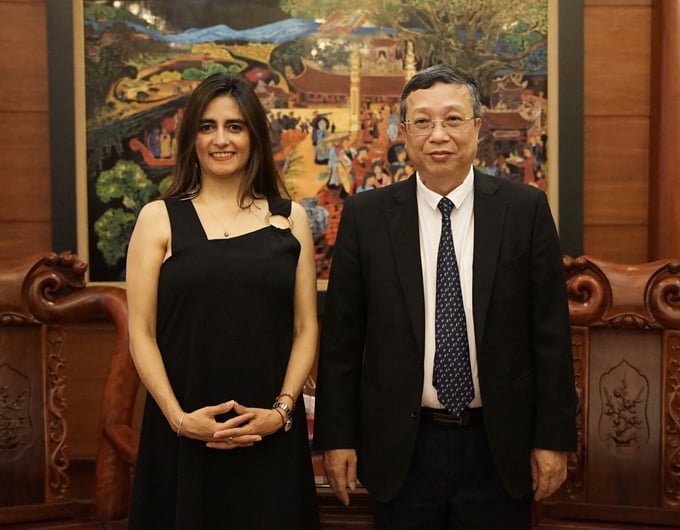
Deputy Minister of Foreign Affairs of Chile said that the recent 5th meeting of the Vietnam - Chile Free Trade Council focused on market opening exchanges with agricultural products between the two countries.
The agriculture sector's growing significance is evident in Vietnam's GDP growth rate, which is projected to be about 5% in 2023 and an average of 6% over the next five years. Sanhueza highlighted the potential for Vietnamese farmers and agricultural firms to expand their market presence in Chile, given the same objectives of both countries in terms of agricultural product quality and market expansion.
In order to promote collaboration, the two nations are dedicated to utilizing free trade agreements (FTAs) and their participation in regional trade blocs such as the Comprehensive and Progressive Agreement for Trans-Pacific Partnership (CPTPP) to eradicate trade obstacles and facilitate agricultural commerce.
The Chilean Vice Minister stated that the fifth session of the Vietnam - Chile Joint Trade Committee serves as a platform for sharing market information and evaluating potential opportunities. Chile aims to facilitate the sharing of information regarding Vietnamese agricultural products and enhance the market reach for Chilean items. Both Deputy Ministers highlighted their mutual interest in maintaining the flow of high-quality agricultural goods between their countries.
Vietnam has finished assessing the dossier for kiwi products from Chile and will send a delegation to Chile for an inspection. Sanhueza suggests that liberalizing the market for these two Chilean items will facilitate the growth of trade between the two countries.
Deputy Minister Hoang Trung acknowledged that, due to the enduring amicable relationship between the two nations, both governments are keen to enhance trade in order to align with their respective capacities. In response to the two concerns raised by the Deputy Minister of Foreign Affairs, Deputy Minister Hoang Trung confirmed that the assessment of the documentation for pig and beef products has been finalized, and the subsequent stage involves conducting an inspection at the actual site.
Deputy Minister Hoang Trung has confirmed that the pest risk assessment for kiwi fruit has been finished, and the Plant Protection Departments of both nations have reached an agreement on the pest risk report. The importation of Chilean kiwi into Vietnam will soon be finalized.
The leaders of the Ministry of Agriculture and Rural Development have reached an agreement with Chile about a proposal for a memorandum of cooperation in the field of agriculture. They express their hope that the memorandum would be signed promptly once all necessary technical procedures have been completed.
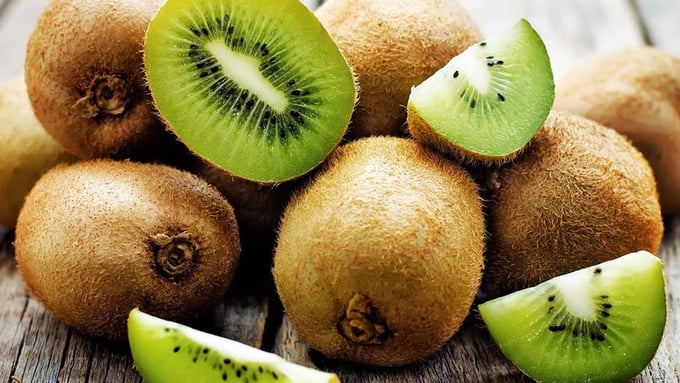
Pest risk assessment of Chilean kiwifruit has been completed and the Plant Protection Departments of the two countries have agreed. Photo: TL.
Recently, numerous agreements have been concluded between the two parties, including a government-to-government agreement on cooperation in animal and plant quarantine. Nevertheless, after a decade, numerous contents have become obsolete in light of the present circumstances. Deputy Minister Hoang Trung proposed a thorough examination, addition, and renewal of agreements to enhance trade in the agriculture, forestry, and fishery (AFF) sector between the two parties.
In 2023, the export-import turnover between Vietnam and Chile exceeded 1.4 billion USD, down by over 15% from the previous year’s record high of 1.7 billion USD and roughly equivalent to that in 2021. Vietnam's key exports include various types of phones and components, computers, electronic products, machinery, textiles, garments, and footwear.
The Chilean market is not as stringent regarding product quality as the US, Japan, and EU countries, hence a significant advantage for Vietnamese exports.
Both countries also have substantial potential for cooperation in the green hydro and renewable energy sectors, such as wind and solar power. In Chile, renewable energy accounts for 40% of the total electricity production, with 13% of global green hydro coming from the country’s southern region.
Translated by Dieu Linh

(VAN) Deputy Minister Nguyen Quoc Tri also expressed his hope that Cuba will soon overcome its current challenges, attain food security, and further expand cooperation with Vietnam.

(VAN) The project contributes to enhancing the resilience of communities vulnerable to the impacts of climate change, with a primary focus on local women.
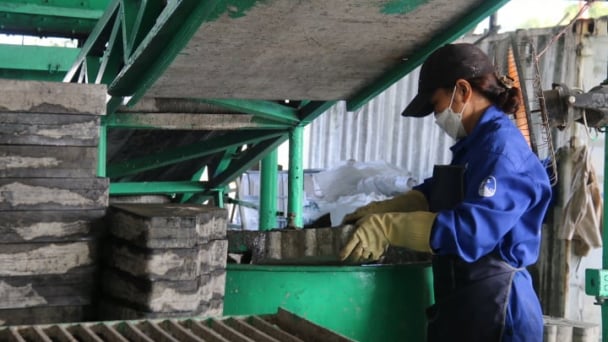
(VAN) Green materials help save energy and resources. However, after more than 10 years, Vietnam has only developed over 200 green buildings with more than 6 million square meters of floor space.

(VAN) Vietnam - Thailand Business Forum 2025: One plus one on three connects, marking a milestone in the comprehensive strategic partnership between the two nations.
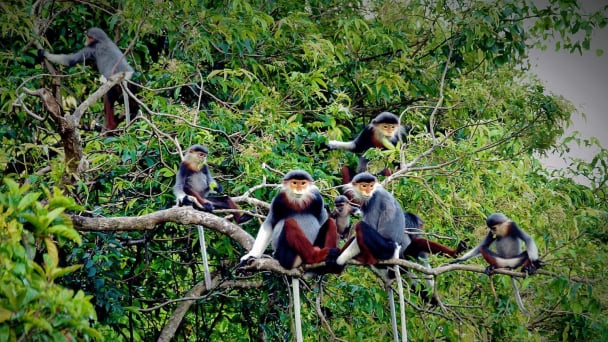
(VAN) The United Nations designated 22 May as the International Day for Biodiversity 2025 with the theme 'Harmony with nature and sustainable development.'
![Multi-channel, multi-directional Vietnamese agricultural markets: [8] A national strategy is needed](https://t.ex-cdn.com/nongnghiepmoitruong.vn/608w/files/phucpm/2025/05/15/1435-thi-truong-nong-san-viet-da-kenh-da-huongbai-8-can-mot-chien-luoc-quoc-gia-084750_728.jpg)
(VAN) The Chairman of Hung Nhon Group shared: ‘Opening up and tapping into new markets is the right and strategic direction for Vietnam's agricultural sector.’
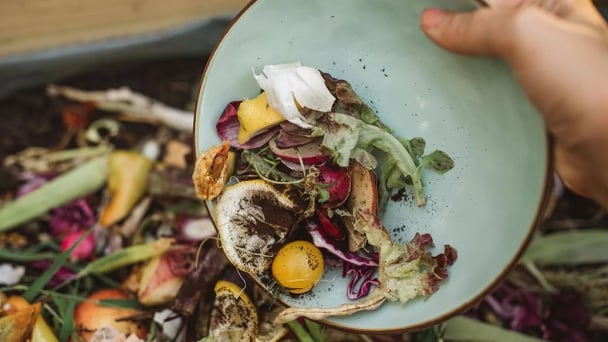
(VAN) Food waste has become a serious issue in modern society, especially in rapidly urbanizing and developing cities like Hanoi.